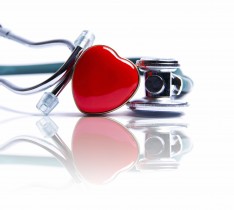New Blood Pressure Guidelines Affect Many
You know your age. You probably know how much you weigh. You might even know where you fall on the body mass index.
But do you know your blood pressure?
If you don’t, the few minutes it takes to have it read could save your life. High blood pressure is called “the silent killer” because, unless you have it checked, you may never become aware of its damaging effects until you have a heart attack or a stroke.
High blood pressure can harden your arteries, making it hard for blood and oxygen to flow to your heart. It can also burst or block arteries that send blood and oxygen to your brain.
Knowing your blood pressure and whether it’s elevated is the first step to reducing your risk for heart disease and stroke.
If you think you’re too young to have high blood pressure, consider this: High blood pressure affects 25 percent of men and 19 percent of women between the ages of 35 and 44. The risk of high blood pressure increases as we age, too.
In fact, nearly half of all U.S. adults have high blood pressure, according to new guidelines issued last year. The guidelines lowered the threshold for diagnosing high blood pressure to 130 over 80. The first number – systolic blood pressure – measures the pressure in your blood vessels when your heart beats. The second number – diastolic blood pressure – measures the pressure in your blood vessels when your heart rests between beats.
Under the old guidelines, high blood pressure was 140 over 90. The new guidelines mean more people are considered to have high blood pressure, especially younger people.
If you haven’t had your blood pressure checked recently, make an appointment to see your health provider. Your doctor can prescribe medication, if you need it, to help get your blood pressure under control.
Many people don’t need medication, but they still need to make lifestyle changes to adapt healthy behaviors. Making time to exercise and eating a healthy diet can result in significant improvements to your health.
When you have your blood pressure checked, make sure to follow these simple rules to avoid getting a false reading:
- Refrain from smoking, exercising or drinking caffeine 30 minutes before having your blood pressure measured.
- Instead of sitting on an exam table, sit in a chair with your feet on the floor. Make sure your legs are uncrossed.
- Sit for five minutes without talking before having your blood pressure taken.
- Make sure the blood pressure cuff touches your bare skin. Roll up your sleeve if necessary.
- Sit at a desk or a table so your arm is supported during the reading. Do not rest your arm in your lap.
- If your blood pressure is high, have it measured again on a separate occasion.
If you are diagnosed with high blood pressure, see your doctor regularly and follow whatever treatment plan they prescribe for you. Living a healthy lifestyle can help control your blood pressure and prevent complications.
For more information or to find a healthcare provider near you, call 804-359-WELL or visit http://goodhelpdocs.com/.
May is American Stroke Month and National High Blood Pressure Education Month – Learn More: https://newsroom.heart.org/events/may-is-american-stroke-month-6028517
Source: https://bonsecours.com/hampton-roads/about-us/blog/new-blood-pressure-guidelines-affect-many

Comments are closed